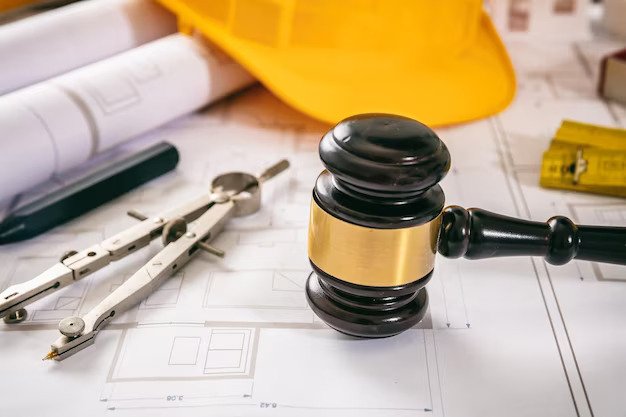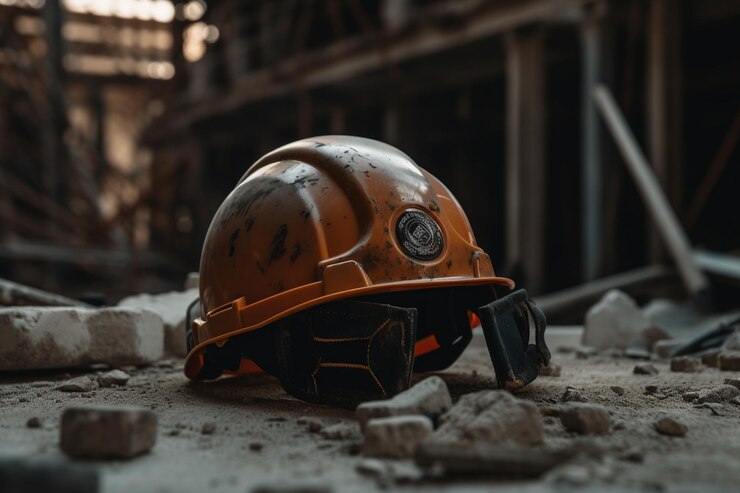The workplace is one of the most dangerous places a person can be in. Accidents can still occur even though safety managers and company owners do their best to uphold safety in the workplace.
In fact, per data from the International Labor Organization (ILO), around 340 million workplace-related accidents are recorded every year. These accidents happen across various sectors, including the construction industry.
Construction accidents are a fairly common occurrence. According to the Bureau of Labor Statistics (BLS), an estimated 150,000 construction accidents are reported each year. These accidents affect construction workers and their loved ones.
Worry not; if you’re working in a construction company and encounter an accident while doing your job, you have rights and can file for compensation. And if you’re forced to a tight spot, you have legal pathways that you can take with the help of an experienced construction accident lawyer. Want to know more about the aforementioned subjects? Continue reading below to learn more.
What Are Workers’ Rights In Case Of A Construction Workplace Accident?

Construction workers are covered by a set of different legal protections that shield them from harm while they do their jobs in the workplace.
For starters, construction companies are required to ensure that they provide a hazard-free working environment for their personnel. Further, they’re required to have insurance to cover any unexpected eventualities like construction accidents. Those are just some of the legal protections construction workers like you are guaranteed.
Thus, construction workers have the right to work in a safe workplace environment and file a claim for their injuries and other losses if they have an unforeseen accident while they’re at work.
If you’ve been injured on the job, the first thing you should do is seek medical attention. Your health and well-being should always be your top priority. Once you’ve received the necessary medical care, it’s important to report the accident to your employer or to your immediate supervisor. This step is necessary to notify your construction company employer that you’ve had an accident on the job and you wish to file for just compensation.
Construction Workers’ Compensation After A Workplace Accident
In many cases, workers who are injured on the job are entitled to workers’ compensation benefits. These benefits can help cover the cost of medical treatment, lost wages, and other expenses related to your construction accident injury. To receive these benefits, you’ll need to file a claim with your employer’s workers’ compensation insurance carrier.
Filing a construction accident workers’ compensation claim is a complicated and tedious process. You’ll need to accomplish tons of paperwork, interview witnesses, gather various pieces of evidence, obtain medical and workplace records, and so much more in filing your claim. In addition, it’ll take a lot of back-and-forth between you, your employer, and the insurer as your claim application is being processed.
Say You Diligently Cooperated With Your Employer
Say you’ve prepared and submitted all of your documents on time, diligently cooperated with your employer and their insurance company, and built a strong claim case. If that’s the case, your claim will likely get approved. Yet there’s a chance that you’ll get a reduced amount award compared to your original claim.
Nonetheless, it’s important to note that workers’ compensation approval depends on a case-to-case basis. Your construction company’s insurer will process construction accident claims depending on their insurance coverage plan, the prevailing laws in the state where you’re, and so on.
Workers’ Legal Recourse After A Construction Accident
If your workers’ compensation claim is denied or if you feel that you’re not receiving the full benefits you’re entitled to, it’s a good idea to consult with a construction accident lawyer. An experienced attorney specializing in helping construction accident victims can help you understand your rights and options and can represent you in legal proceedings.
Your construction accident lawyer can help you file an appeal with your company’s insurer in case your initial compensation filing is denied or you’ve received a reduced claim award. To add, they can initiate and carry out negotiations with your company and their insurer. If no legal conclusion that’s amicable to all the parties involved is reached, your attorney can proceed with filing a case in a court of law and handle the reins from there on.
What To File?
In addition to workers’ compensation benefits, you may file a lawsuit in personal injury against the third party who was responsible for your injury too. For example, if a subcontractor or equipment manufacturer was negligent and their actions contributed to your injury, you may be able to hold them accountable through a personal injury lawsuit.
A personal injury lawsuit can help you recover damages for medical expenses, lost wages, pain and suffering, and other losses related to the injuries you’ve contracted in a construction accident. Yet it’s important to note that there are strict time limits for filing a personal injury lawsuit. If you wait too long to take legal action, you may lose your right to seek compensation. Fortunately, a construction accident lawyer can help out with that too.
What You Need To Know About Working With A Construction Accident Attorney

It’s important to understand that every construction accident case is unique. The specific rights and options available to you will depend on the circumstances of your accident and the laws in your state. That’s why it’s important to consult with a construction accident lawyer who can help you understand your rights and options.
When you meet with a lawyer, they’ll review the details of your case and help you determine the best course of action. They may recommend filing a workers’ compensation claim, pursuing a personal injury lawsuit, or taking other legal action. Plus, they’ll help you gather pieces of evidence to support your case and will represent you in any legal proceedings.
Navigating Complex Legal System
One of the benefits of working with a construction accident lawyer is that they can help you navigate the complex legal system. They’ll handle all the paperwork and legal procedures on your behalf, allowing you to focus on your recovery. Also, they’ll advocate for your rights and best interests, working to ensure that you receive the full compensation you’re entitled to.
Besides helping you seek compensation for your injuries, a construction accident lawyer can also help you hold any responsible parties accountable for their actions. This can help prevent similar accidents from happening in the future and can help improve safety standards in your company and the construction industry in the bigger picture.
To Conclude
If you’ve been injured in a construction accident, it’s important to know that you’re not entirely in a hopeless position. You’re entitled to certain rights and can file a construction accident claim with your company’s insurer.
And there are legal options available to help you seek justice and compensation for your injuries. A construction accident lawyer can help you understand your rights and options and represent you in legal proceedings. Don’t hesitate to reach out for help – you deserve justice and compensation for your injuries.
Read Also:






















